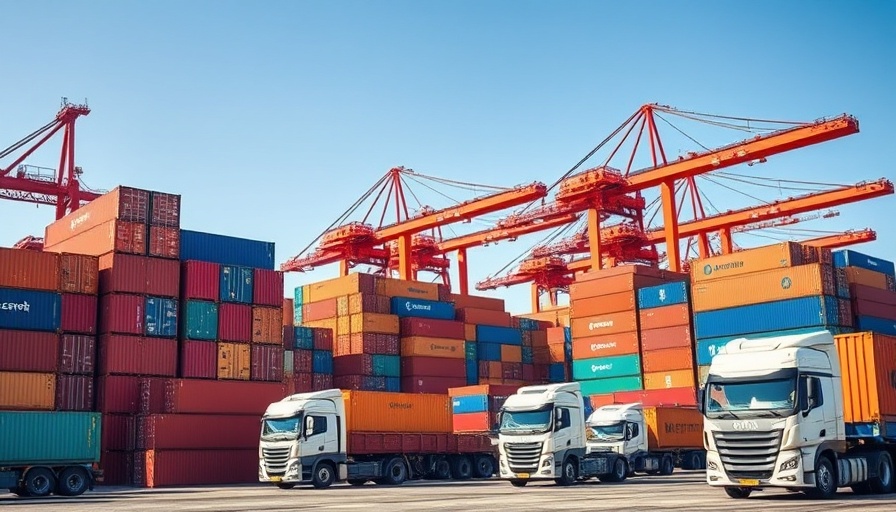
The Growing Tensions: US Government's Latest Move Against Chinese Firms
In a significant escalation of trade tensions, the U.S. Department of Commerce has added six subsidiaries of Inspur Group, a major Chinese cloud computing and big data service provider, to its export restriction list. This decision comes amid ongoing concerns over national security and foreign policy interests driven by the Chinese military’s persistent advancements in supercomputing technology. The action further emphasizes the complex landscape of international trade, where technology and security intersect.
Why Inspur Matters in Technology and Defense
Inspur Group is known for its crucial role in developing technologically advanced systems that can be utilized in various fields, including military applications. By targeting companies like Inspur, the U.S. is sending a message about its heightened vigilance on firms deemed to be contributing to military enhancements in China. The Commerce department’s actions imply that companies do not merely need to operate transparently but also maintain strong compliance to avoid being caught in the crosshairs of sanctions.
The Impact on the Tech Industry and American Businesses
The restrictions specified by the U.S. mean that American firms face stringent rules when conducting business with these listed subsidiaries. For example, they must apply for a license to export goods, which is often difficult to obtain. This could lead to deeper ramifications for companies like AMD and Nvidia, who have been scrutinized for their past dealings with Inspur. The challenge now lies in navigating these regulations while still striving for innovation and growth in their businesses.
The Broader Context of Export Restrictions and Trade Policies
The recent actions are part of a broader strategy adopted by the U.S. to combat perceived threats from China, especially amid a climate of economic rivalry and national security concerns. Historically, such restrictions have been applied to various sectors, particularly in technology, which has increasingly become a battleground for global dominance. As the digital era continues to advance, understanding these restrictions becomes vital, not only for multinational corporations but for investors watching the market closely.
Investment Implications and Strategy Adjustments
For investors, these geopolitical changes could prompt a reassessment of asset allocations and sector exposure. As companies like Inspur get restricted, it can lead to volatility in the stock market, especially in tech-focused portfolios. A keen understanding of stock market trends becomes essential. Investors may consider diversifying their portfolio through international investing or even turning towards ethical investing, where they can choose to invest in firms that align with their values.
The Future of Investment Strategies Amidst Sanctions
With the potential for increased sanctions and restrictions on certain sectors, investors must stay informed and agile. Strategies such as portfolio diversification can mitigate risks posed by sudden market shifts. Moreover, keeping a close eye on economic indicators will offer valuable insights into how global events influence investment landscapes.
Concluding Thoughts: The Intersection of Policy and Investment
The recent additions to the U.S. export blacklist illustrate the complex interplay between national security and international business. These developments highlight the importance for investors and companies alike to remain adaptable in their strategies. As such regulations evolve, so too must the philosophies governing investment practices. It’s essential to approach these changes with a mindset geared toward flexibility and informed decision-making.
As a call to action, investors should consider reassessing their portfolios in light of these geopolitical events, evaluating potential risks while exploring new opportunities for growth. The rapidly changing landscape underscores the need for ongoing education and strategic planning in investment activities.
 Add Row
Add Row  Add
Add 



Write A Comment